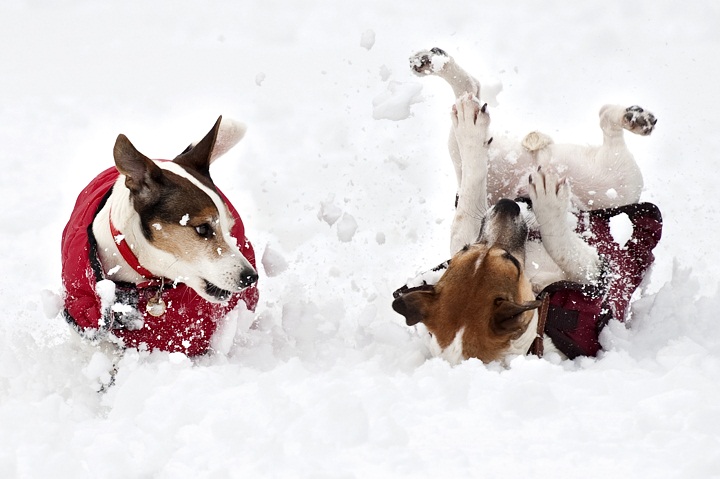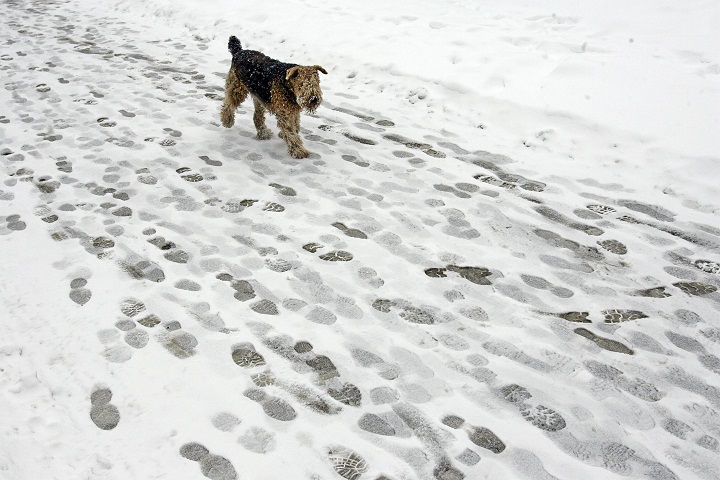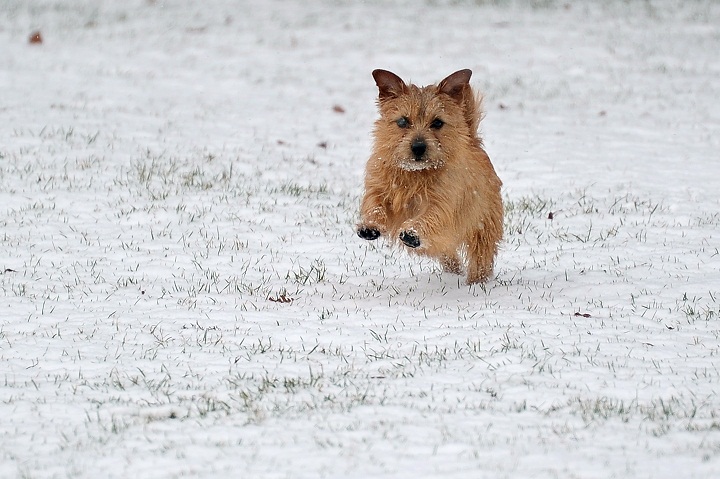TORONTO – Laurie Shannon isn’t a fan of winter and neither are her two pugs, Iggy and Winston.

When it’s time to go out, she grabs her dogs’ booties and sweaters, then she has to hunt Iggy down.
“Iggy hates the winter, hates the cold, hates the ice, snow, salt and everything about it,” she said.
The five-year-old pug even tries to shake off the cold like he would with rain. “He’s two steps behind, hanging his head and he looks miserable,” Shannon said.
It’s a far cry from the summer weather when the pug waits by the door with his leash hanging from his mouth.
READ MORE: How to safely walk your dog during a polar vortex
Canadians are dealing with weeks of subzero temperatures, part of what’s been dubbed a “polar vortex.” It doesn’t bode well for us, but do dogs like the cold weather?
Global News asked Dr. Berney Pukay, a veterinarian and member of the Canadian Veterinary Medical Association’s Council, for his tips on pet health for the winter.
“There’s nothing wrong with letting your dog out as long as you follow the guidelines,” Dr. Pukay told Global News.
Pet owners should also keep an eye on whether their dog is healthy, isn’t old and debilitated and has the appropriate protection for harsh winter weather.
Can dogs or cats get frostbite?

Get weekly health news
It’s unlikely for a healthy dog or cat, Dr. Pukay said. “Their paws have very, very rich blood supply, as do their ears and tips of their tails. The only way this could be a hazard is if they have compromised circulation or they’re unhealthy. This is more of possibility for stray cats or dogs out in the cold without a proper shelter.
How long should you keep your dog outside in the cold?
It depends on the breed and the length of the coat hair, Dr. Pukay said. In some cases, a big Labrador retriever that’s used to running around in the backyard could stay outside for hours at a time. Little dogs that rarely go out and are carried a lot would only need about 10 to 15 minutes at most.
READ MORE: Protecting pets from severe winter weather
As a rule of thumb, if you have a larger-sized dog that’s used to staying outdoors while you ski or go snowshoeing, Fido can stay out as long as you can. He’s well-equipped with the insulation of his primary and secondary coats of hair. Smaller dogs can benefit from a sweater, even if they’re taking short walks.
Can my dog get sick from licking the salt off his paws or on the street?
Yes, the salt on the roads can be a problem but less of a health hazard than you’d think. If your puppy licks the salt off his paws excessively, it can cause stomach irritation but “not to a great extent,” Dr. Pukay says.
How do I take care of my puppy’s paws in the icy, salted streets?
The bigger concern is the salt getting in between the webs of your puppy’s paws. It causes irritation and painful inflammation and, in turn, your dog could take up licking, biting or chewing their little stompers, and end up hurting themselves. The smaller the dog – like a Terrier – the more they’re going to be affected by the irritation, Dr. Pukay said.
“It’s simply an irritating substance. Their skin is half the thickness of a baby, they’re actually a lot more sensitive,” he explained.
Shannon says that when her dogs get salt on a paw, they’ll tend to keep that paw from touching the ground. That’s when she scoops them up and wipes their paws clean.
Dr. Pukay suggests that owners should try to avoid areas that have been heavily salted while going for a walk. When you get home, wash your dog’s paws with a wet cloth to rinse off any salt, then towel dry.
You can also buy booties for your dog. They may not like it but it’s a natural reaction, Dr. Pukay said.
“It’s a survival instinct. They don’t like constricting their paws – they feel trapped or that it limits their mobility,” he told Global News.
(FREDERICK FLORIN/Getty Images)
carmen.chai@globalnews.ca
Follow @Carmen_Chai











Comments